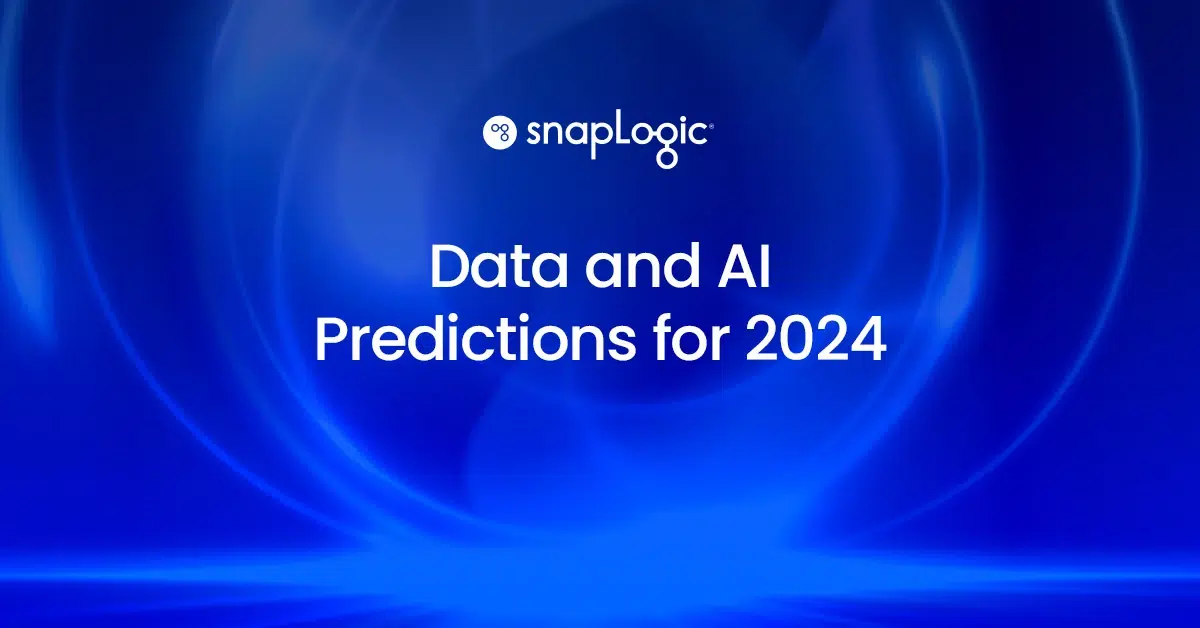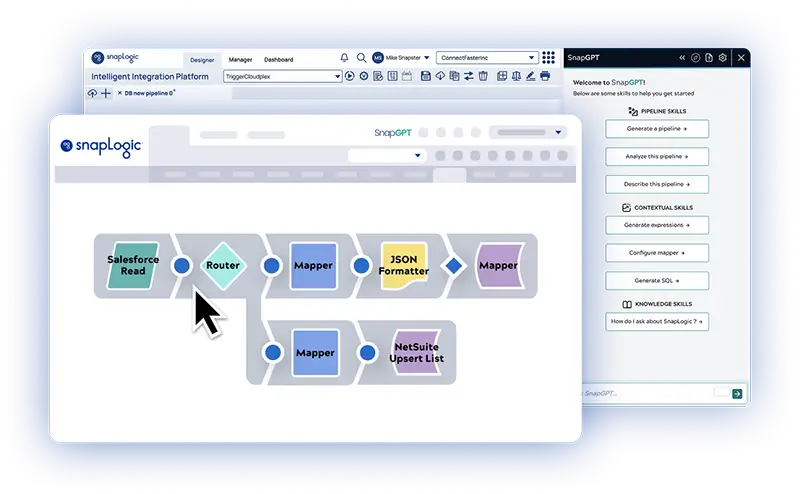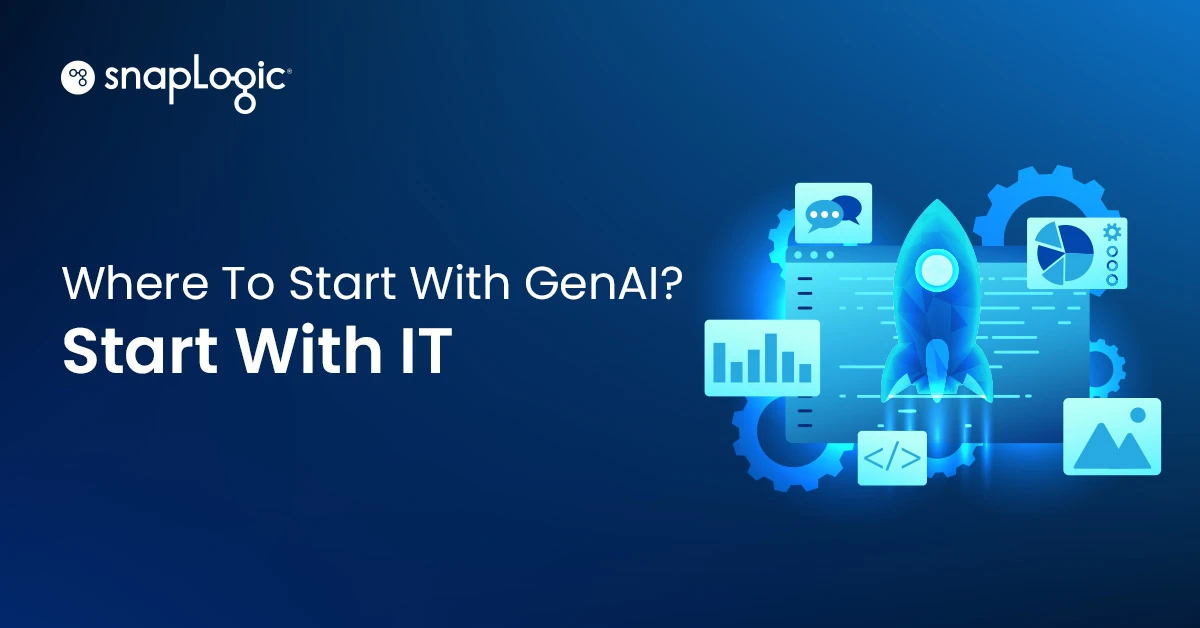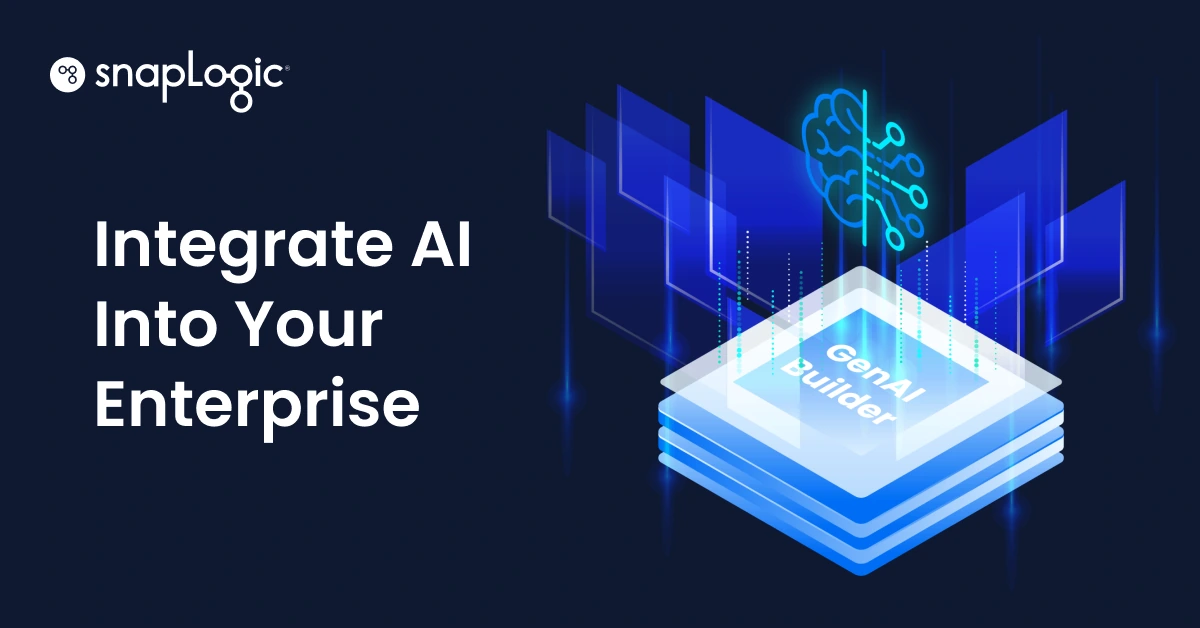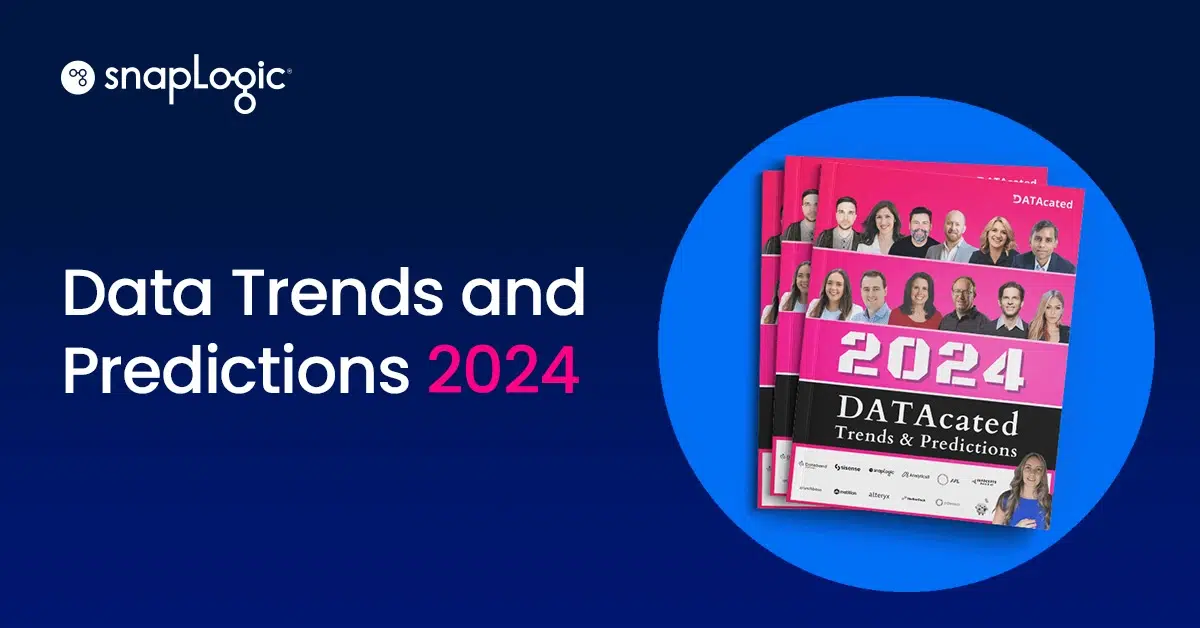We just wrapped another great fiscal year and we are knee-deep in Sales Kick Off planning. So what better time than now, to talk about what we see in the coming year? Read on for some predictions from our SnapLogic industry experts, on what will be a transformative year in 2024.
So here we go! Join us on this exhilarating journey as we explore the forefront of innovation and unravel the exciting possibilities that await in Generative Integration this year.
Chief Technology Officer, Jeremiah Stone
AI will progress and develop constantly
With 2023 witnessing significant advancements in language models and powerful AI tools becoming available in various domains, 2024 expects to carry this momentum forward. The experts foresee wider, more realistic applications of AI and exciting deployments of innovative technologies across industries. However, the importance of a holistic AI strategy catering to differing requirements is critical, and tailored AI applications will probably gain larger traction.
There will be an increased focus on learning and upskilling
The steep learning curve with AI technologies witnessed in 2023 is expected to continue its course, leading to an increase in investments in this overserved area. The adoption of AI by teams is set to increase alongside upskilling efforts, with online courses and larger community involvement becoming paramount. Organizations will likely increasingly encourage teams to understand and effectively utilize AI technology.
LLMs will have a big impact on enterprise content management
Large language models (LLMs) are forecast to have a marked impact on improving enterprise content management and accessibility to information. Organizations will likely leverage these models to enhance search capabilities and content engagement, leading to more efficient and productive systems.
VP of Product Marketing, Manish Rai
GenAI won’t replace workers, but it’s likely to change how they work
In 2024, Generative AI won’t lead to mass job displacements and redundancies, as many early sensationalist reports might have suggested. Every new technological revolution in human history has led to concerns about job losses. Technological progress can indeed lead to job losses. However, it leads to the creation of new jobs that more than offset the job losses. We expect the same with GenAI. GenAI won’t completely replace experts in any field.
Although models will have access to an insurmountable amount of information, human review will almost always be necessary to ensure the right answers. It has already created new, high-paying jobs such as prompt engineers. The next step in GenAI is understanding it. Organizations should rethink their approach to AI application and development, and consider the evolution of prompts for qualitative and quantitative improvements.
The key to legacy tech modernization may reside in GenAI tools
After a year of GenAI integration, traditional businesses recognize its transformative potential beyond mere hype. In 2024, we anticipate a surge in the adoption of GenAI by legacy companies seeking to evolve their systems and modernize technology stacks. Traditionally resistant to change, many businesses are tied to outdated software due to procurement processes and concerns about disruption, but GenAI offers a solution by facilitating the migration from old code bases to modern languages and platforms.
Integration platforms that connect to both legacy on-prem applications and SaaS applications across multiple cloud environments can accelerate modernization. Generative integration platforms that bundle the ability to rapidly create new GenAI-powered applications, allowing enterprises to both modernize and take advantage of GenAI, will experience rapid growth in 2024.
The dialogue for responsible and/or regulated AI integration will continue
Regulation and ethical considerations in AI application within businesses will remain a central dialogue in 2024. There will be an increased focus on human oversight and more significant frameworks for ensuring ethical outcomes. Businesses should be prepared to face the potential risks associated with the lack of proper control mechanisms in AI systems and will likely need to implement robust measures to avoid them.
Responsible AI, a new approach for addressing these concerns, recommends developing and operating artificial intelligence systems that align with the enterprise’s purpose and ethical values. Enterprises should institute Responsible AI policies to ensure business leaders and developers are taking ethics, trust, and risks into account when launching transformative GenAI applications.
More to come
As for me, these exciting developments in AI are changing every facet of marketing and the technology my teams use every day. Seeing the power of products like GenAI Builder, it’s clear to see the entire enterprise is evolving. It will require agility, adaptability, and a willingness to push the envelope on innovation. If you want to learn more from other industry leaders, specialists and pioneers in this GenAI world, check out the Evolving the Enterprise summit coming in March. And stay tuned for more exciting predictions for this sure-to-be transformative year from our leadership team.





